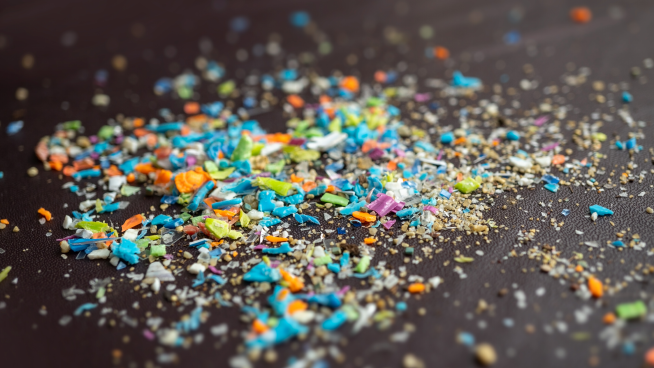
From The Detroit News | By Ken Calverley and Chuck Breidenstein
DETROIT, April 27, 2023 ~ In a famous scene from the 1967 movie “The Graduate,” Dustin Hoffman’s character, Ben, a recent college alumnus, is wrangled away from the celebration party by businessman Mr. McGuire, who puts an arm around his shoulder and says, “Just one word. One word, Benjamin. Plastics.”
And the rest is history. In 2018, the U.S. created 35.7 million tons of plastic and landfills received 27 million tons of that as buried waste.
Take a quick survey of your surroundings and you will be amazed at the proliferation of plastics in your home.
PODCAST:
April 29, 2023 ~ Chuck “The Inside Guy” Breidenstein and Ken “The Outside Guy” Calverly offer the knowledge and resources you need to make the home of your dreams a reality. Catch them every Saturday and Sunday from 10 a.m. to noon on 760 WJR.
(CONTINUED)
We use them in disposable goods that range from diapers to packaging to trash bags and in more durable goods, on and in everything from appliances to home furnishings to automobiles.
Prior to this product explosion, U.S. citizens created very little waste on a daily basis. Food was served or prepared fresh and the average home composted what excess they generated.
Canned goods were produced in glass containers like the famous Ball canning jars, which were re-used many times.
Today, the average U.S. citizen generates 4.4 pounds of trash every day with only 1.5 pounds of that being re-used or recycled. Trask pickup is a necessary public service to every home, every week.
Plastics, like most materials, break down over time. An emerging issue that some call “the worst environmental issue of our time” is the discovery of microplastics, MP, throughout our food chain, including our drinking water. MP are particles less than 5 millimeters in diameter.
MP have been found in everything from aquatic micro-organisms to human placentas. Though there is a dearth of long-term study data available, there are estimated ranges of daily intake for humans ranging from six particles per day to nearly 300.
The World Health Organization, WHO, tells us there is “no evidence so far to support claims that MP in drinking water pose big health hazards to humans”, and the European Food Safety Authority, EFSA, tells us that “MP larger than 150 micrometers are unlikely to be absorbed by human beings, passing through the gut undigested.”
Despite these claims, red flags are being raised, most notably on the cusp of the train derailment disaster in Ohio where burning vinyl chloride, VC, from tanker cars created a toxic environment in the area.
The construction industry has used various plastic pipes for both water supply and sewage transport. Polyvinyl chloride, PVC, has long been a staple in water well casings and waste disposal systems.
Environmental advocacy groups are pointing to the EPA and others and mentioning events like the Flint Water Crisis where, they claim, replacement of lead-based pipes was not enough.
Yet, the EPA recently responded negatively to a petition from a Center for Biological Diversity request to have discarded PVC classified as a hazardous waste.
Experts in water supply and water testing throughout the state claim knowledge of the issue, but cite a lack of study data to support potential health issues, or an absence of governmental action to establish threshold levels of danger.
Concerned building owners do have resources in companies such as SOS Analytical, SosAnalytical.com, a certified drinking water laboratory, to have water quality monitored on a regular basis.
Jarrad Beauchamp, owner of Beauchamp Water Treatment Solutions throughout the Metro Area, points out the availability of reverse osmosis filtering for whole-house use or point-of-use locations like the kitchen sink.
Reverse osmosis systems are so effective at filtering water that WHO cautions those installing an RO system to consider installation of a mineral cartridge to replenish vital minerals in the water.
We will certainly be hearing more about this as more data is acquired and assimilated. For now, we should acknowledge the potential impact of the issue and take active steps to protect ourselves and our families.
As, always, you have resources you can trust at the InsideOutsideGuys.com.
***
For housing advice and more, listen to “The Inside Outside Guys” every Saturday and Sunday on 760 WJR from 10 a.m. to noon, or contact them at InsideOutsideGuys.com.

